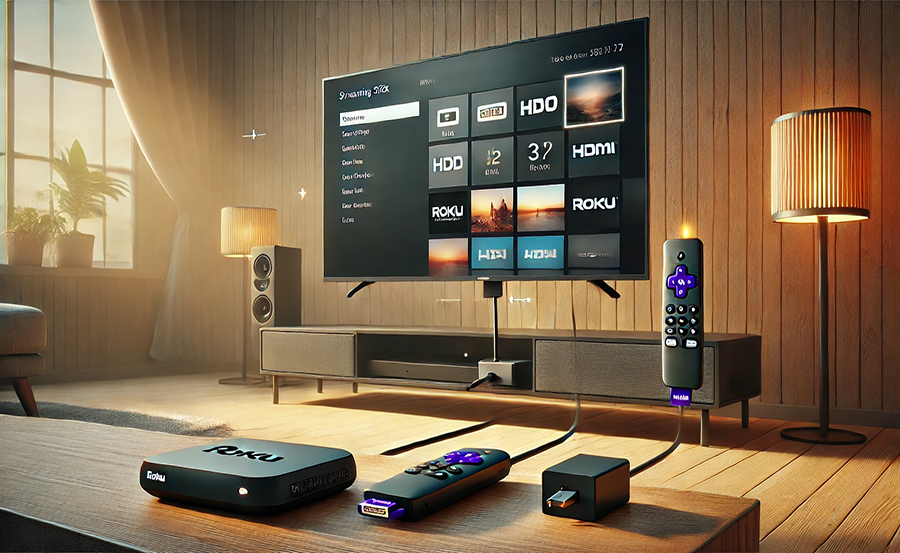In today’s fast-paced digital landscape, IPTV (Internet Protocol Television) stands as a game-changer, transforming how we experience media content. As technology advances, IPTV has gained immense popularity, offering an array of channels and on-demand content accessible from virtually anywhere. However, users often encounter connectivity problems, which can hinder the seamless experience IPTV promises. This comprehensive guide aims to address these issues, providing practical recommendations, and focuses on enhancing your viewing experience with Rapid IPTV, the best IPTV provider in Europe. Buy 1 Year IPTV Subscription
Understanding Common Connectivity Issues with IPTV
Bandwith and Network Stability
Bandwidth is like the backbone of IPTV services. The proper amount ensures a smooth streaming experience, while any shortage or instability can create annoying interruptions. It’s vital to check if your internet connection meets the minimum requirements suggested by your IPTV provider. For most services, including Rapid IPTV, a stable connection of at least 10 Mbps is recommended. This should keep buffering woes at bay and allow for high-definition viewing without lag.
Router and Device Compatibility
Your choice of router and connected devices plays a crucial role in the overall performance of your IPTV. Some routers are better equipped to handle multiple streams simultaneously, so investing in a quality router might be worth considering. Similarly, outdated devices or firmware might also contribute to connectivity disturbances. Make sure to keep devices updated and, if possible, opt for Ethernet over Wi-Fi for a more stable connection.
Troubleshooting IPTV Connection Problems
Regularly Restart Devices
If your IPTV service lags, restarting your router and streaming device can sometimes work wonders. It’s a simple solution that refreshes the connection, clearing any temporary hiccups that might be causing the problem. Restarting is a quick fix but can significantly improve performance, acting as a short-term solution to persistent connection issues.
Use a VPN for Enhanced Connectivity
In some instances, geographic restrictions can affect your IPTV service. By using a VPN, you can bypass such limitations, leading to a more thorough and uninterrupted streaming experience. A VPN helps mask your location and can provide a more stable and faster connection, particularly when accessing content specific to a region.
Steps to set up a VPN
- Choose a reliable VPN provider known for streaming.
- Install the VPN app on your device.
- Select and connect to a server that suits your viewing needs.
Optimizing Settings for a Better IPTV Experience
Adjusting Quality Levels
Sometimes, high-definition content can be a bandwidth guzzler. If experiencing buffering, consider reducing the quality setting of your IPTV service. While this may reduce the sharpness of visuals, it can vastly improve the smoothness of your streaming experience, particularly when the network bandwidth fluctuates.
Prioritize Devices
With multiple devices competing for the bandwidth pie in many households, advanced router models offer a feature called QoS — Quality of Service. This allows users to prioritize which devices or applications should have preferential access to the available bandwidth. By prioritizing your IPTV stream over other internet-based activities, viewers can achieve a comfortable viewing experience.
Why Rapid IPTV is the Optimal Choice
Unmatched Channel Range and Quality
Rapid IPTV is renowned as the best IPTV provider in Europe, offering an extensive selection of channels and high-quality streams. Subscribers enjoy both popular and niche channels, across various genres and languages, ensuring diverse viewing options for everyone. The service emphasizes delivering high-definition content, ensuring visuals are as clear and crisp as possible.
Exceptional Customer Support
Navigating IPTV issues becomes easier with a service that’s responsive and knowledgeable—traits found in Rapid IPTV’s customer support. Whether it’s about installation queries or troubleshooting, their support team is armed with the right solutions. This top-notch service ensures any connectivity worrisome scenarios are promptly addressed with professionalism and empathy.
Best Practices for Durability and Efficiency
Regularly Update IPTV Apps
Ensuring your IPTV apps and devices have the latest updates is pivotal. Updated software often comes with patches, enhancing service stability and performance. It might seem like a tedious chore, but these periodic updates can make a substantive difference in your overall IPTV experience. Always make it a habit to check for updates monthly.
Secure Connections
Security is paramount, and so maintaining a safe network environment is essential. Be sure to secure your home network with strong passwords; steer clear from using public networks for IPTV streaming. This practice not only safeguards personal data but also prevents unauthorized users from clogging your connection bandwidth.
Frequently Asked Questions (FAQ)

What makes Rapid IPTV different from other providers?
Rapid IPTV stands out because of its wide-ranging, high-quality channel selection combined with excellent customer service. Its robust streaming capability ensures minimal downtime, making it a reliable choice amongst IPTV options.
Why is my IPTV constantly buffering?
Buffering typically indicates issues with bandwidth or could be related to your internet speed, network settings, or device limitations. Ensuring a stable, fast internet connection is crucial, and following the steps mentioned for troubleshooting will likely reduce this issue.
Do I need a VPN for IPTV?
While not mandatory, using a VPN can enhance privacy and access geo-restricted content, making it a valuable addition to your IPTV setup. It may also help resolve connectivity issues by offering a better route for data transmission.
How can I prioritize my IPTV over other devices on my network?
Utilize the QoS feature available in most routers to prioritize IPTV, ensuring it receives the bandwidth needed for smooth streaming. Consulting your router’s manual can provide specific instructions on enabling this functionality.
How often should I update my IPTV apps?
Regular updates are crucial and should be done at least monthly or when new releases are available. This ensures you benefit from the latest features and any performance-enhancing bug fixes.
Is a wired connection better than wireless for IPTV?
Yes, a wired Ethernet connection is generally preferred over Wi-Fi for IPTV as it provides a more stable and reliable link, reducing the chance of interference typical in wireless connections.
That’s a wrap on connectivity solutions aimed at perfecting your IPTV experience. Remember, consistent quality streaming relies heavily on not just your IPTV subscription but also how well your home network setup synergizes with Rapid IPTV’s powerful service offerings. Enjoy seamless streaming!
Essential Tips for Fixing IPTV Playback Errors

